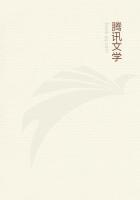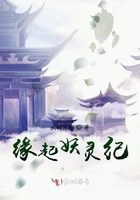This chart of Force was more easily studied than any other possible scheme, for one had but to do what the Church was always promising to do -- abolish in one flash of lightning not only man, but also the Church itself, the earth, the other planets, and the sun, in order to clear the air; without affecting mediæval science. The student felt warranted in doing what the Church threatened -- abolishing his solar system altogether -- in order to look at God as actual; continuous movement, universal cause, and interchangeable force. This was pantheism, but the Schools were pantheist; at least as pantheistic as the Energetik of the Germans; and their deity was the ultimate energy, whose thought and act were one.
Rid of man and his mind, the universe of Thomas Aquinas seemed rather more scientific than that of Haeckel or Ernst Mach. Contradiction for contradiction, Attraction for attraction, Energy for energy, St. Thomas's idea of God had merits. Modern science offered not a vestige of proof, or a theory of connection between its forces, or any scheme of reconciliation between thought and mechanics; while St. Thomas at least linked together the joints of his machine. As far as a superficial student could follow, the thirteenth century supposed mind to be a mode of force directly derived from the intelligent prime motor, and the cause of all form and sequence in the universe -- therefore the only proof of unity. Without thought in the unit, there could be no unity; without unity no orderly sequence or ordered society. Thought alone was Form. Mind and Unity flourished or perished together.
This education startled even a man who had dabbled in fifty educations all over the world; for, if he were obliged to insist on a Universe, he seemed driven to the Church. Modern science guaranteed no unity. The student seemed to feel himself, like all his predecessors, caught, trapped, meshed in this eternal drag-net of religion.
In practice the student escapes this dilemma in two ways: the first is that of ignoring it, as one escapes most dilemmas; the second is that the Church rejects pantheism as worse than atheism, and will have nothing to do with the pantheist at any price. In wandering through the forests of ignorance, one necessarily fell upon the famous old bear that scared children at play; but, even had the animal shown more logic than its victim, one had learned from Socrates to distrust, above all other traps, the trap of logic -- the mirror of the mind. Yet the search for a unit of force led into catacombs of thought where hundreds of thousands of educations had found their end. Generation after generation of painful and honest-minded scholars had been content to stay in these labyrinths forever, pursuing ignorance in silence, in company with the most famous teachers of all time.
Not one of them had ever found a logical highroad of escape.
Adams cared little whether he escaped or not, but he felt clear that he could not stop there, even to enjoy the society of Spinoza and Thomas Aquinas. True, the Church alone had asserted unity with any conviction, and the historian alone knew what oceans of blood and treasure the assertion had cost; but the only honest alternative to affirming unity was to deny it; and the denial would require a new education. At sixty-five years old a new education promised hardly more than the old.
Possibly the modern legislator or magistrate might no longer know enough to treat as the Church did the man who denied unity, unless the denial took the form of a bomb; but no teacher would know how to explain what he thought he meant by denying unity. Society would certainly punish the denial if ever any one learned enough to understand it. Philosophers, as a rule, cared little what principles society affirmed or denied, since the philosopher commonly held that though he might sometimes be right by good luck on some one point, no complex of individual opinions could possibly be anything but wrong; yet, supposing society to be ignored, the philosopher was no further forward. Nihilism had no bottom. For thousands of years every philosopher had stood on the shore of this sunless sea, diving for pearls and never finding them. All had seen that, since they could not find bottom, they must assume it. The Church claimed to have found it, but, since 1450, motives for agreeing on some new assumption of Unity, broader and deeper than that of the Church, had doubled in force until even the universities and schools, like the Church and State, seemed about to be driven into an attempt to educate, though specially forbidden to do it.
Like most of his generation, Adams had taken the word of science that the new unit was as good as found. It would not be an intelligence -- probably not even a consciousness -- but it would serve. He passed sixty years waiting for it, and at the end of that time, on reviewing the ground, he was led to think that the final synthesis of science and its ultimate triumph was the kinetic theory of gases; which seemed to cover all motion in space, and to furnish the measure of time. So far as he understood it, the theory asserted that any portion of space is occupied by molecules of gas, flying in right lines at velocities varying up to a mile in a second, and colliding with each other at intervals varying up to 17,750,000 times in a second.
To this analysis -- if one understood it right -- all matter whatever was reducible, and the only difference of opinion in science regarded the doubt whether a still deeper analysis would reduce the atom of gas to pure motion.
Thus, unless one mistook the meaning of motion, which might well be, the scientific synthesis commonly called Unity was the scientific analysis commonly called Multiplicity. The two things were the same, all forms being shifting phases of motion. Granting this ocean of colliding atoms, the last hope of humanity, what happened if one dropped the sounder into the abyss -- let it go -- frankly gave up Unity altogether? What was Unity?















